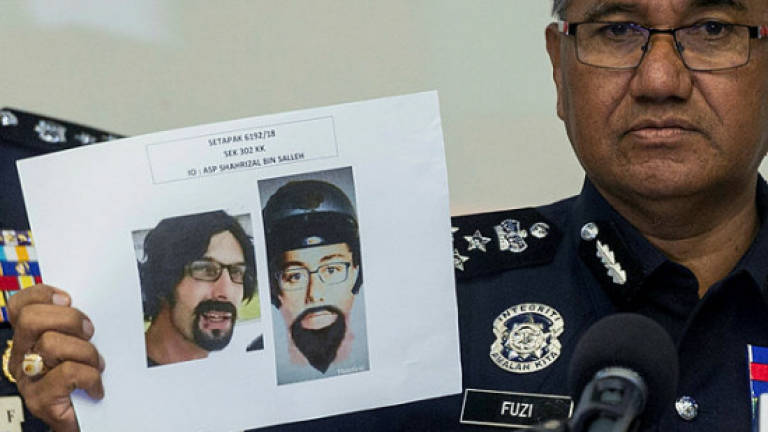Assailants could be have used pistol or submachine gun on Fadi Al-Batsh: Source

BANGKOK: The two "Middle Eastern" – looking men accused of assassinating Palestinian lecturer Dr Mohamed Fadi Al-Batsh in Setapak last month might have used a pistol or a submachine gun (SMG) in the killing.
A security source told Bernama that the investigation team had also not dismissed the possibility that the suspect could have used an Uzi, a compact and easy to conceal submachine gun, especially used by special forces operatives.
"It could be a pistol or submachine gun. Yes, they could be using a Uzi," he said, but cautioned that nothing was conclusive yet as the investigation was ongoing.
Inspector General of Police (IGP) Tan Sri Fuzi Harun recently said they were still waiting for a ballistic report on the type of weapon used by the assailants.
The probability the men used an Uzi SMG to assasinate Al-Batsh could strengthen the accusations made by certain parties including by the victim's family that Israel's spy agency, Mossad, was responsible for the killing.
The Uzi SMG was produced by Israel Weapon Industries (IWI) and used extensively by the Israel Defence Force (IDF) during the many conflicts in the region. As demand for Uzis increased all over the world, the manufacturing of the weapon was licensed to companies outside Israel.
The submachine gun was also commonly used by other armed forces besides Israel.
Weighing about 3kg, being compact and easy to use, the original Uzi uses 9mm calibre bullets similar to pistol's rounds, but possesses a very high-rate of fire capable of reaching up to 1000 rounds per minute, depending on its variants.
Besides the original Uzi submachine gun, which was designed by Uziel Gal in the 1940s, the maker of the weapon had also come out with different variants of the popular weapon, which are much smaller in size compared to the original Uzi, specifically the Mini Uzi, Micro Uzi and Uzi Pro pistol.
Attracted by its light weight, compact design with a high-rate of fire, various members of special forces units and hit squads used Uzi or its smaller variants, especially when engaging enemies in Close Quarter Battle (CQB) or covert operations.
Israel's Defence Minister Avigdor Lieberman had denied Tel Aviv involvement with the murder, but it had not stopped the finger pointing at Mossad, which has been accused of assassinating Hamas and other Palestinian personalities.
Despite Tel Aviv's denial, journalists and local newspapers in Israel claimed the killing of Al-Batsh bore all the hallmarks of a Mossad hit job.
Malaysian Police also declined to pin the blame on Mossad operatives for the murder, as the probe was ongoing, but had widened their investigations by sending a special team to Bangkok and requested cooperation from their counterparts in Singapore and The Philippines.
A security source disclosed to Bernama recently that the two men had used fake Serbia and Montenegro passports to enter Malaysia, a revelation which was later confirmed by the IGP. Using counterfeit travel documents is a common tactic used by spy agents to slip in and out of countries undetected.
The source also revealed that one of the suspects had used a Serbia and Montenegro's passport of a 14 year-old boy.
After assassinating Al-Batsh, the men who were described as "highly professional" and connected to the "Arab-Israeli conflict" fled to Thailand using illegal routes along the border.
Al-Batsh was killed, while walking to a nearby mosque for a dawn prayer, by two men riding a high-powered motorcycle, who sprayed about 10 gunshots at the Palestinian man.
The father of three had been living in Malaysia for about 10 years and was employed by a local university. His body was repatriated to the Gaza Strip for a martyr burial. — Bernama